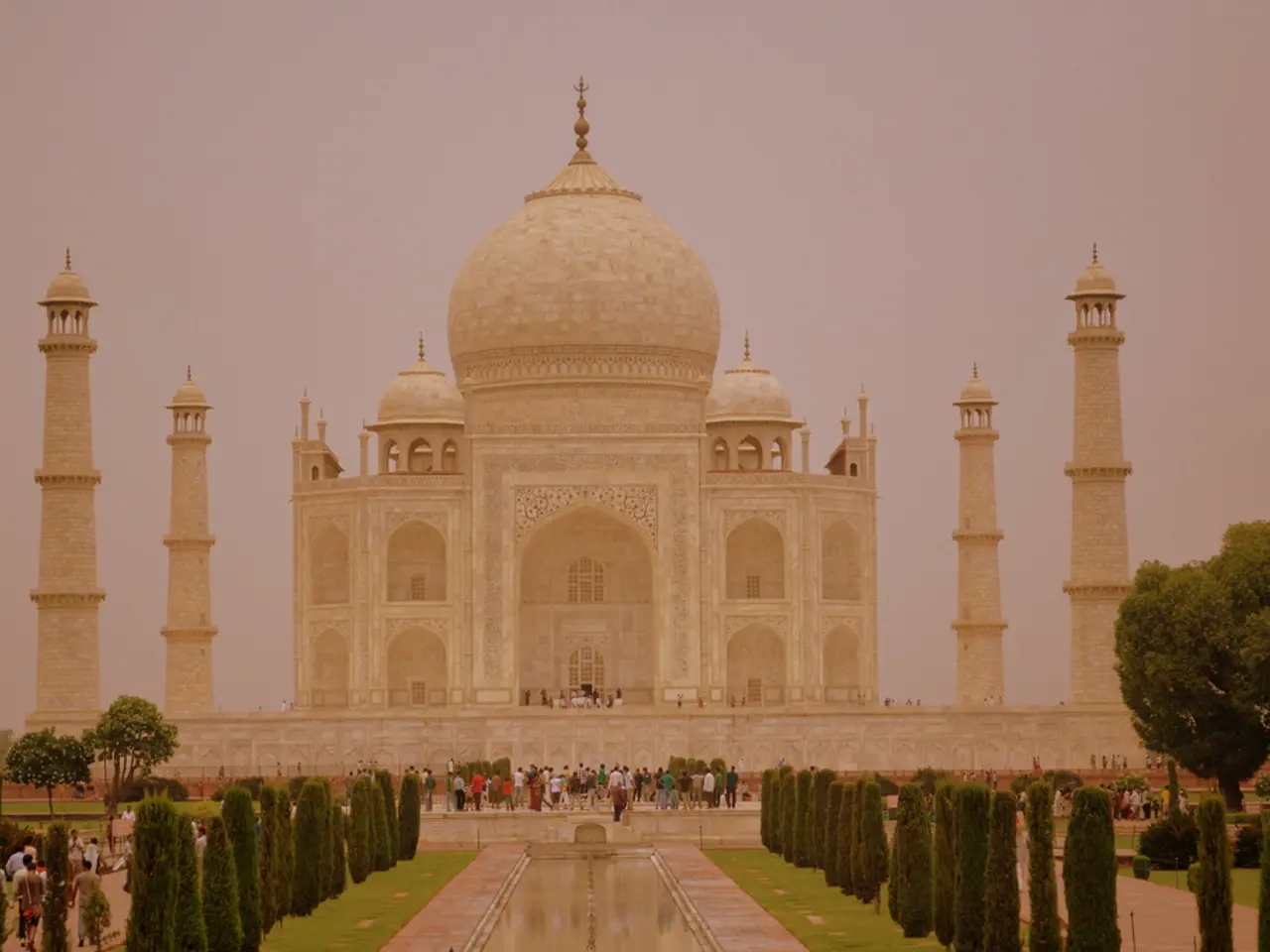Indian Prime Minister Modi issues a warning to Pakistan, dismissing nuclear threats on India's Independence Day.
In the aftermath of the intense border skirmishes between India and Pakistan in May 2025, relations between the two nuclear-armed neighbours remain tense and fragile. The conflict, sparked by a terrorist attack in Pahalgam attributed to Pakistan-based militants, led to Operation Sindoor, a military operation targeting terrorist infrastructure in Pakistan and Pakistan-occupied Kashmir.
India's Prime Minister, Narendra Modi, has vowed that his country will no longer tolerate what he calls Islamabad's "nuclear blackmail." He has emphasised the incompatibility of terror with diplomacy and claimed that India has established a "new normal" that makes no distinction between "terrorists" and those who support them. Operation Sindoor, which is ongoing, reflects this continued military pressure.
Diplomatic talks between the two nations are currently stalled, with India linking any resumption of dialogue to Pakistan's cessation of terror activities. India has also enacted bans on Pakistani media and social channels seen as provocative.
The conflict raised global concerns over nuclear escalation, leading to international calls for restraint and dialogue. However, the situation remains very unstable with bilateral relations at a historic low point since the attack, including suspension of maritime trade and major disruptions in civil air traffic.
In addition to military tension, India’s recent strategic moves—such as altering water-sharing treaties—indicate a broader hardening of policy aimed at increasing pressure on Pakistan over Kashmir-related issues. Pakistan has stated that any effort by India to stop or divert the river would be considered an "act of war."
Modi has also hinted that India will continue its unilateral suspension of the Indus Water Treaty, a treaty that governs the sharing of the Indus River. This move has further escalated tensions between the two countries.
Pakistan, for its part, has previously dismissed India's statements on nuclear threats as provocative and inflammatory, but there was no immediate response to Modi's latest warning.
In a bid to address illegal migration, Modi announced a "high-powered demographic mission." However, the influx of illegal immigrants from Bangladesh, described by Modi's ruling Hindu nationalist Bharatiya Janata Party as a "national security crisis," remains a contentious issue in the region.
The prospects for near-term normalization are low without fundamental changes on the terrorism and security fronts. The current state of India-Pakistan relations underscores the need for continued international efforts towards peace and dialogue between the two nations.
[1] https://www.bbc.com/news/world-asia-india-56937260 [2] https://www.reuters.com/world/india/india-pakistan-exchange-tit-for-tat-military-strikes-2021-05-16/ [3] https://www.aljazeera.com/news/2021/5/16/india-pakistan-exchange-tit-for-tat-military-strikes [4] https://www.nytimes.com/2021/05/16/world/asia/india-pakistan-military-strikes.html [5] https://www.thehindu.com/news/national/modi-says-rivers-from-india-were-irrigating-lands-of-enemies-while-my-country-s-farmers-and-land-faced-a-deficiency-of-water/article34741531.ece
- The world is closely monitoring the ongoing tension between India and Pakistan in the aftermath of war-and-conflicts, with concerns growing over defense and nuclear escalation between the two nuclear-armed neighbors.
- General news outlets report that India's Prime Minister, Narendra Modi, has used strong political rhetoric, threatening not only military action but also breaching water-sharing treaties, which is seen as a cultural and diplomatic provocation by Pakistan.
- The culture and politics of the region are increasingly intertwined with war-and-conflicts, as India's military operations and strategic moves such as the ongoing Operation Sindoor intensify, leading to a fragile and volatile situation on the India-Pakistan border.






